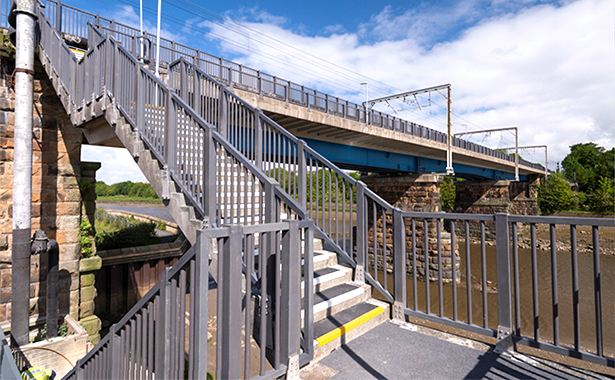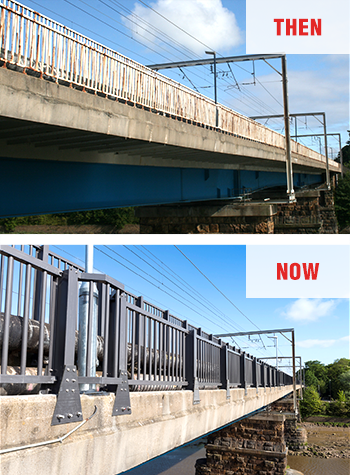Case Study: Composites Aid in Fencing & Handrail Refurbishment

 Carlisle Bridge in Lancaster, United Kingdom has been in service since 1847 and currently carries the West Coast Main Line over three 36.6m spans. Within its years of service, the metal fencing and handrails have received countless refurbishments and complete overhauls which were deemed too costly and time intensive for Network Rail and its consumers.
Carlisle Bridge in Lancaster, United Kingdom has been in service since 1847 and currently carries the West Coast Main Line over three 36.6m spans. Within its years of service, the metal fencing and handrails have received countless refurbishments and complete overhauls which were deemed too costly and time intensive for Network Rail and its consumers.
| TECHNICAL DATA |
|---|
| Product: FRP Fencing and Handrail |
| Process: Pultrusion |
Materials & Sizes: EXTREN® Series 525 structural shapes:
|
| For: Pipex px® |
| User: Network Rail - River Lune, Lancaster, UK |
Network Rail, the authority responsible for the United Kingdom's railway network, needed a product which was aesthetic, high strength, corrosion resistant, lightweight, and maintenance free. To ensure these benefits, Network Rail specified pultruded FRP (Fiber Reinforced Polymer) as the material has proven itself in many past civil engineering applications when corrosion issues were present. Pipex px® presented a structure with parapet fencing and handrails constructed of EXTREN® Series 525 to address the previous corrosion and aesthetic woes associated with metal fencing and handrail. The height of fencing on this project ranges from 1.07m to 2.44m which runs on both sides along the length of the bridge. EXTREN® I-beams, square tubes, round tubes, and flat plates were used in the pedestrian stairwells. In total, almost 564 linear meters of combined FRP material was fabricated offsite and then installed by Story Contracting. Both the installers and end users were delighted with the outcome of the completed fencing and railing refurbishment project.
As it stands with its current design, the fencing and handrail at Carlisle Bridge should be able to endure more than 60 years of continuous service.